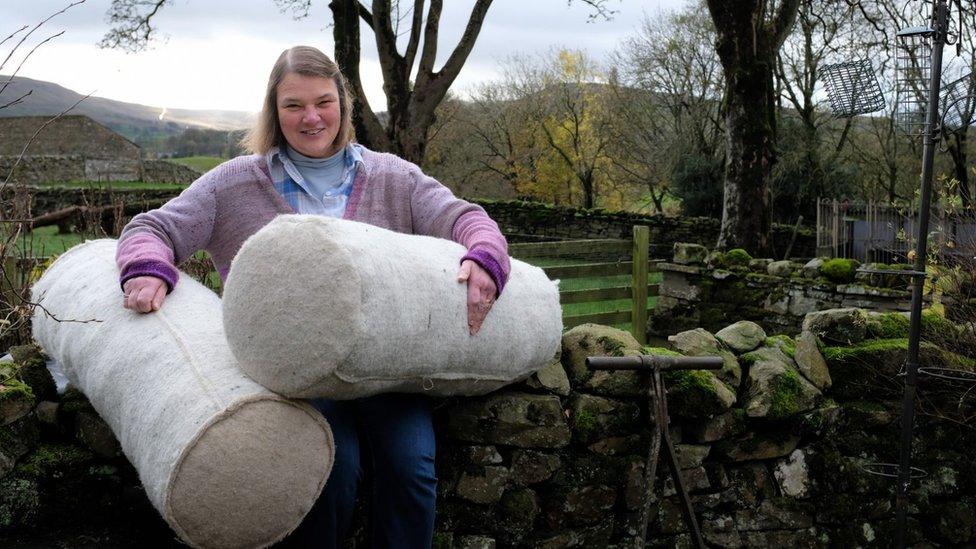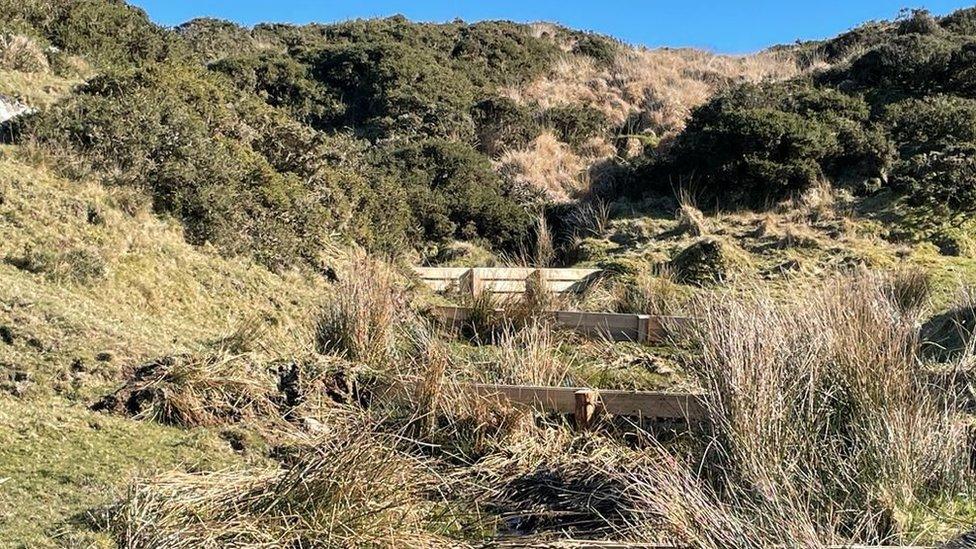Yorkshire Dales: Wool logs placed on moorland to protect peat
- Published

Ruth Lindsey has been using the logs to slow the flow of streams after heavy rain and protect the exposed peat
Wool logs are being used in the Yorkshire Dales to protect acres of peatlands from being eroded after heavy rain.
The exposed peat can be washed into rivers before moss or other vegetation grows on the moors to hold it together.
It is hoped the wool logs, using wool donated by four local farmers, will also help reduce flooding downstream.
Ruth Lindsey, who came up with the idea, said she wanted to stop relying on using imported coconut husk.
"From start to finish the wool travels 145 miles, whereas with coconut fibre it's travelled thousands of miles. The amount of wool that could be used on bogs is astonishing," she said.
Ms Lindsey, who lives in Hardraw in Upper Wensleydale, has been making the logs out of Swaledale sheep fleeces.
A small scale trial using 30 wool logs is taking place at Fleet Moss in the Yorkshire Dales, as well as at two peatland sites in the North York Moors National Park.
Peatland is important for the national park as it can pull in and store huge amounts of carbon from the atmosphere, the park authority said.
By placing the logs across eroding gullies, the aim is to slow the damage currently being caused on large parts of the moors.
'Exciting'
For farmers, the wool is fetching about 8p per kilogram (2.2lbs), with it costing up to £1.50 for a sheep to be sheared, Ms Lindsey said.
"So they are making a massive loss. That's why mountain wool is being burned or buried or left in barns."
While she currently takes the wool for free, if the trial is successful Ms Lindsey hopes to pay for it in future.
"The idea is to support the local community by using local wool for local peat," she said.
Mark Corner, from the Yorkshire Dales National Park Authority, said it was an "unusual" idea but was "exciting and eye-catching".

Follow BBC Yorkshire on Facebook, external, Twitter, external and Instagram, external. Send your story ideas to yorkslincs.news@bbc.co.uk, external.
Related topics
- Published14 March 2023
